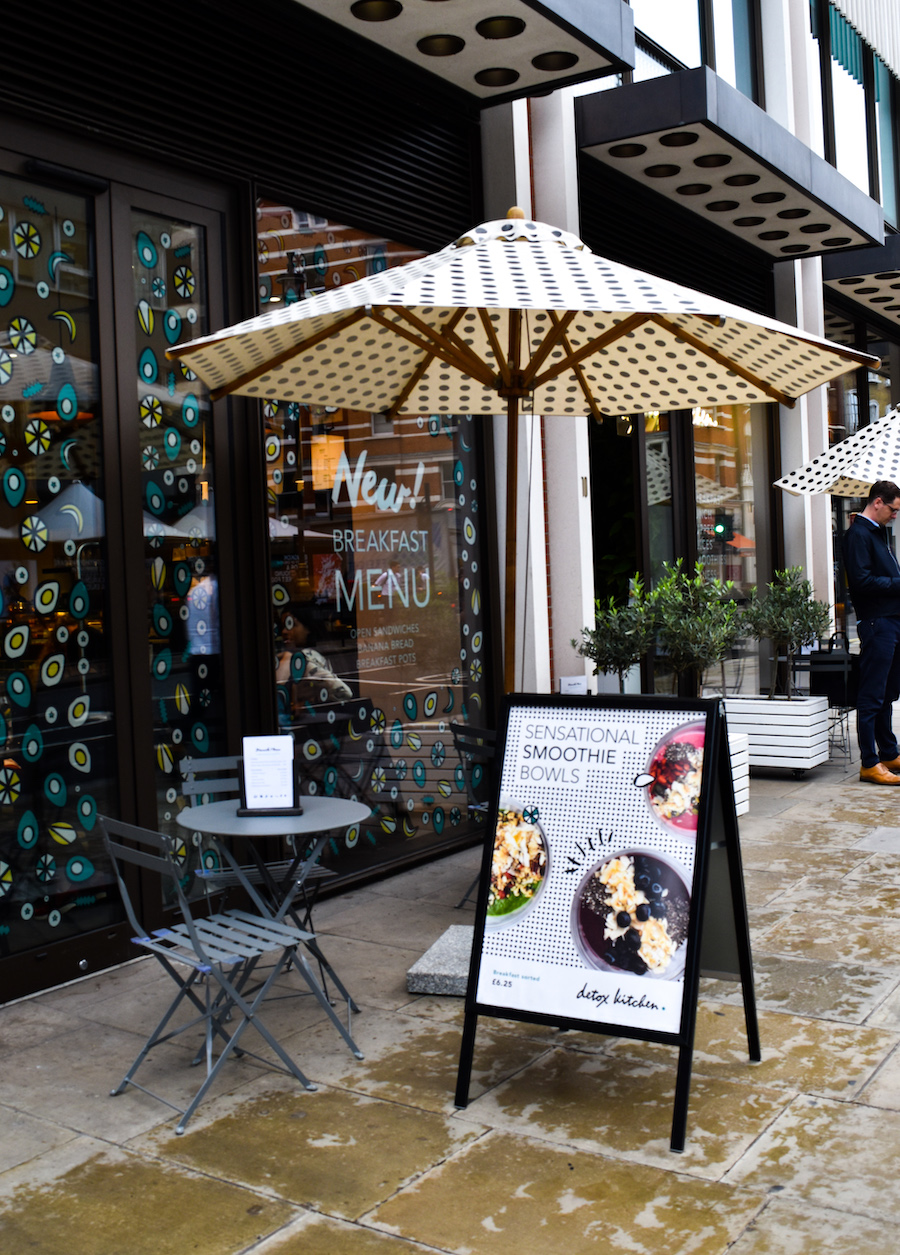Leadership & Strategy
Article
It’s The Small Things: Detox Kitchen founder Lily Simpson

Founder of Detox Kitchen, Lily Simpson, shares the challenges of running a freshness-obsessed food business. She talks about avoiding the trends trap (avocado toast anyone?) and learning to trust your instincts – even when it comes to big, hairy strategic decisions. And the time she ignored her gut-feel and made a BIG mistake. Read on.
This interview featured on “It’s The Small Things”, a Be the Business podcast series providing the inspiration small and medium-sized companies (SMEs) need to take a step-by-step approach to business improvement. Listen to Lily’s interview, and others, by subscribing on your favoured podcast platform.
- Apple: https://apple.co/32BNrAn
- Stitcher: https://bit.ly/30DXovu
- Spotify https://spoti.fi/2JKvDum
- Acast: https://bit.ly/2GjU0hz
Detox Kitchen started as a meal delivery business. You’ve added a couple of delis and recently cookbooks. How did all those moving parts come together?
Ultimately, we just want more people to eat and enjoy healthy food. We started as an e-commerce business delivering breakfast, lunch and dinner but I quickly realised that I wanted to have a much larger audience. Fresh food is quite an expensive product, so adding in the delis made our product more affordable and it meant we could feed more people. From there we decided to do the cookbooks because we were very London centric company I wanted to reach a lot more people nationally and internationally. A book is a really great way to do that. Brands in this industry are notorious for having far too many moving parts, but any time we decide to look at a new channel or a new business, I think we’ve always started with the big question: “Why are we doing this?”
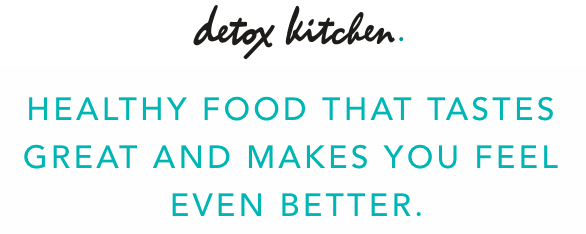
Tell us about Detox Kitchen’s focus on quality and how you’ve used it to guide your strategy
Our focus on quality has always set us apart. We could have altered our online offerings, so that our price point was slightly lower, and we could have gone nationwide earlier, but I always thought if we created a product that was amazing, people would come back day after day – and they’d talk about it. That’s the best and most organic way to grow and that’s what’s given us such a strong foundation.
In the food world there are always loads of trends. What we’ve done is kind of ignore them all and just be super confident that we know what good nutrition is and keep our focus. What food is going to make us feel amazing?! Now, we’re in a position where we are ready to scale, and I know that the quality of our product is ready too. We’re going to double our head office team this year in order to deliver on sales targets, and we’re also moving our central kitchen because we’re at full capacity, so that will be a massive project for us.
What’s the most challenging thing about running a fast-paced food business?
A particular challenge with Detox Kitchen is that we’re a fresh food business so we never freeze anything. That makes operations very difficult. We have to look at our costings on a daily basis. If broccoli has doubled in price for example, our profit’s completely gone. Cost is just one example of where we have to be really on the ball. We deliver to between three to four hundred individuals a day in central London and all of those people are having breakfast, lunch and dinner.
So in terms of production, we’re producing 10 to 15 units per person per day, so it’s a huge amount. In our delis, we have about a thousand people through the doors every day, so that’s another 1,000 meals that we’re producing. In any one week, we’re producing about 10,000 meals. We’ve got 25 chefs in our central kitchen and then we’re a team of about 16 in central office. In terms of day-to-day operations, it’s an incredibly difficult business to run. I love the fast pace of it, but it can be incredibly stressful.
What are some of the changes – big and small – have you made as the business has grown?
We make changes all the time, I think you have to. We’ve made our processes much more resilient so we now have a bulletproof health and safety system all online we can monitor it in real-time. We know by 10am, for example, if our central kitchen in Battersea has done all of the correct checks they should have done to open the kitchen. We know whether our delis have done the right checks, if there was an issue with any product, if there was an issue with the yoghurt or the carrots for example, we know all of that really quickly.
From an e-commerce side of things, we launch new products, whether that be a package that we just want to test. Last January we introduced a 20-day package, so the idea was that we wanted people to see that transformation. It worked. In terms of delivery, we’ve changed the way that we organise our fridges. Before I would just shove everything on a shelf and put a label on it. Now we have a system in place, the labels are printed, and they’re put onto the boxes. It’s little things like that to make sure you’re always making it easier for the kitchen and for the delivery guys. The trick with change is to make sure your team know you’re doing it to improve things. And you need to recruit people who are capable of change.
So how do you approach recruitment for food and non-food roles?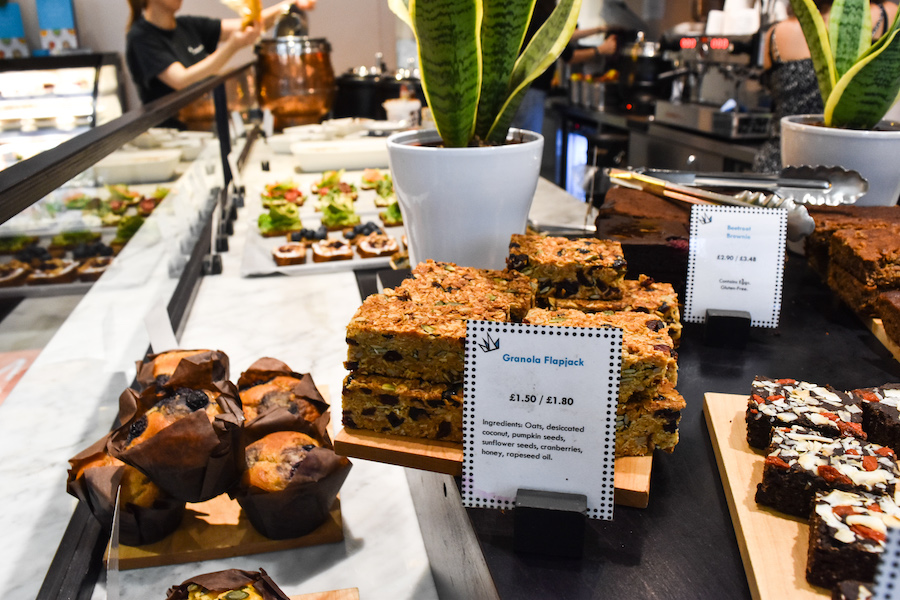
First and foremost, I recruit people who can believe in our vision. Trying to get people to understand and utterly believe in what our end goal is, is the hardest part. You know really quickly if you have someone who isn’t totally aligned. I would say 50 percent of my time is taken up with recruitment. To grow a company, getting the right people is the most important you can do – certainly in this industry. In the past year we started using agencies; the fees are high, but you do get really great people through the door.
About a year ago, our marketing team was me and one part-time person. Now we’re a team of five and it’s about to be six. Getting my thoughts and feelings about your brand on paper is really hard. It’s almost like writing down on paper why you love your husband! The marketing team have to get this brand Bible out of me, and I have to be able to make sure they understand the tone of voice, why we speak in the way we do, the words we use and the words we don’t use and so on. It sounds easy but it is really tricky.
When it comes to strategy, you seem to have trusted your gut. How has that worked out so far?
For me it’s the only way. I’ve learned that from a very painful experience. We were opening our third deli in Russell Square, and I had a feeling from the start it wasn’t going to work. I just couldn’t visualise it working. But we had a great team of people, some of them from big corporations, that really knew their stuff. So from a numbers perspective, it was an absolute banker site. That’s why I’d let go of all of my instincts and given it the go-ahead. But when it opened, I walked through the door and knew 100% that it was not going to work. We ended up closing the site within six months.
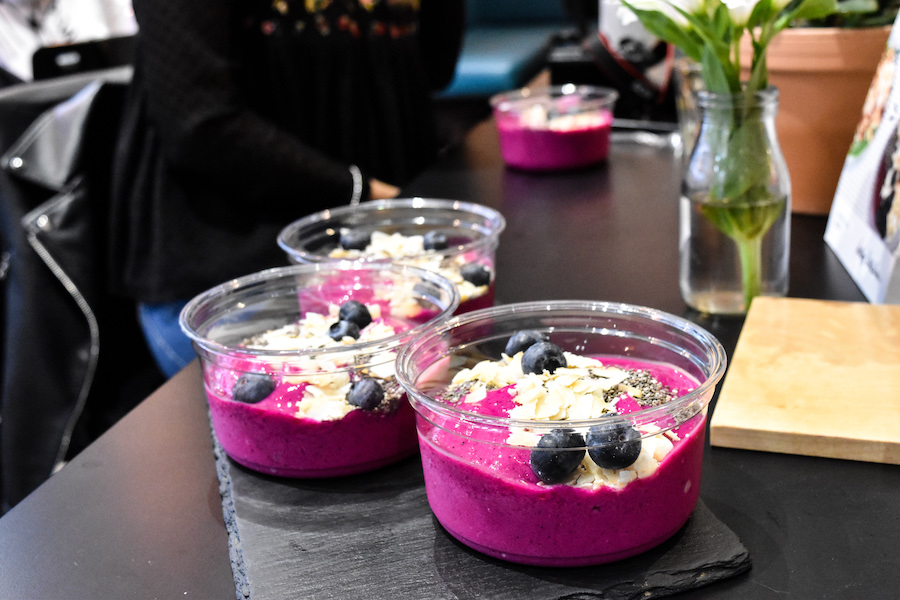
Your gut is basically just the collation of all the information you’ve ever stored in your brain. It just depends how quickly you can find it. So one thing I’ve learned over the last seven years is to trust my gut. I don’t really talk about gut feel any more though, I just say “I know what I’m talking about”. The resilience you build up from making mistakes like that is good. The business has come out much stronger and I’d say to anyone to trust your instincts. It’s very different to trusting your heart – you have to be able to separate the two.
So did you decide to close the site down or did you give it a go?
A lot of people would have let that site just carry on or try and change the concept or whatever it might be. But in my mind, I knew we’d built a really strong business here and I didn’t want to let one site pull us down. I would much rather accept that we’d made a mistake and move on. There are loads of businesses – Pret, Itsu, Eat – all of the kind of big chains, they are constantly opening and closing stores that don’t work and I guess the learning is from them. Just because you’re a small business it’s no different.
I have no ego whatsoever; I don’t think you can afford to have an ego when you run a business. So shutting that site down for me was not going to be embarrassing. it was a case of “this business needs to survive, and we need to move forward, and this is just a big drain on us so let’s just get rid of it”. Let’s learn from what we’ve done. It was the best decision we made. We managed to assign it very quickly to the under-bidder and it all worked out OK.
Do you look to other businesses to learn from for your own personal development as a leader?
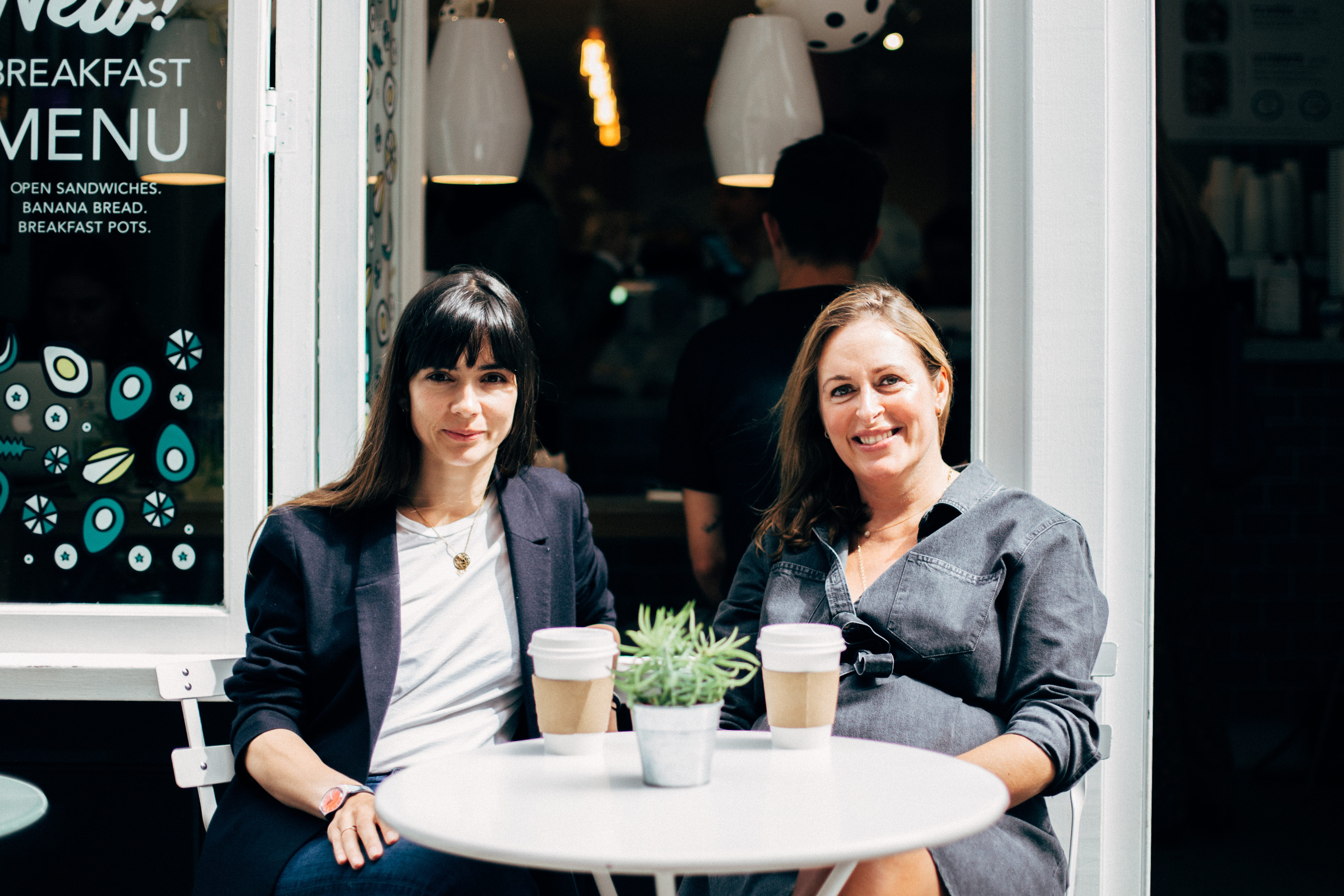 From a day-to-day management perspective, I underestimated the amount of work that goes into staff, especially with such a young team. People need a lot of personal development and I know that having a one-to-one will make them feel empowered. They’ll know that there is a very clear to-do list and I will support them in doing whatever they need to do- prioritising them is important. My biggest focus is people. The main aim is building the culture we’ve created stronger and stronger.
From a day-to-day management perspective, I underestimated the amount of work that goes into staff, especially with such a young team. People need a lot of personal development and I know that having a one-to-one will make them feel empowered. They’ll know that there is a very clear to-do list and I will support them in doing whatever they need to do- prioritising them is important. My biggest focus is people. The main aim is building the culture we’ve created stronger and stronger.
I have a network of female entrepreneurs and we’re always talking. You know in the next couple of weeks I’ve got a meeting with a competitor that wants to do a crowdfunding raise and they reached out to me. So I’m going for a coffee with them to talk about how they can do a better raise than I did. Sometimes I’ll read an article in a paper and think “I need to speak to that person” because they can probably help me, so I’ll reach out to them. Now I have a handful of people that I would say are mentors who have a lot of experience in my industry or in others.
I think the important thing is, at times where you need that support, you have a network of people that you can reach out to. People are so willing to help, also if they’re not, that’s fine. Email 10 people, one person might reply, and that’s who you should be speaking to.
Find out more about Detox Kitchen here or listen to our interviews with leaders from other foodie brands:
